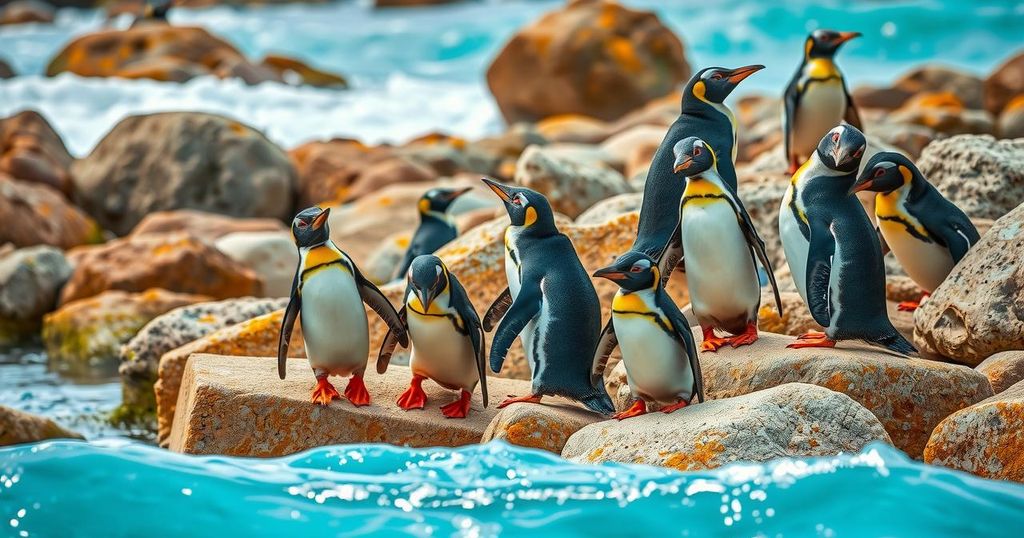South Africa’s African Penguins are valued between R2 billion and R4.5 billion in 2023, linking their survival to ecological and economic benefits. Continued decline in their population, now critically endangered, necessitates effective conservation strategies apart from existing no-fishing zones. Recent legal actions have resulted in new agreements to expand protections around penguin colonies, highlighting the importance of both environmental and economic considerations.
Experts emphasize the significant economic value of South Africa’s African Penguins, asserting that the colonies are worth between R2 billion and R4.5 billion in 2023, alongside supporting numerous jobs tied to their habitats. Despite pressures from the pelagic fishing industry, which reports 5,100 jobs and an annual contribution of R5.5 billion to the economy, the loss of these penguins would result in higher economic costs through diminished tourism and ecological impacts.
The valuation framework for penguin colonies considers multiple factors, including tourism revenue, educational and media benefits, and the intrinsic value of species existence even without direct human engagement. Anchor Environmental Consultants analyzed visitor data and spending patterns, revealing a potential for growth in penguin-related tourism, particularly around the Simon’s Town and Bird Island colonies.
Since its listing as critically endangered in October, the African Penguin population has drastically decreased, with only 8,324 breeding pairs remaining in 2023, largely due to human activities and climate change. Factors such as oil spills and competing fishing practices have exacerbated this decline, making conservation efforts critical to reversing penguin endangerment.
Moreover, penguin tourism has yet to reach its full potential, especially at Bird Island, with increasing visitor numbers indicating a bright future. Simon’s Town is already a key tourism magnet, ranked among Cape Town’s top attractions. Attention to ecological laws and balanced resource management is essential for the long-term survival of these penguins and the tourism associated with them.
The South African government’s past approach to conservation has included experimental fishing zone closures, but these measures have generally yielded minimal benefits. New initiatives based on expert recommendations aim to reassess the effectiveness of these closures, targeting improved outcomes for penguin survival. The recent agreement to extend no-fishing zones, spurred by legal challenges, may provide much-needed relief to the declining penguin population, though effectiveness remains contingent upon diligent monitoring and adjustment of strategies.
In conclusion, African Penguins in South Africa represent a crucial environmental and economic asset worth billions. Protecting these colonies is not only vital for preserving biodiversity but also for maintaining a robust tourism sector. Effective conservation strategies, particularly through expanded no-fishing zones and sustainable fishing practices, are imperative to ensure the long-term survival of these seabirds and the overall health of the marine ecosystem. As the situation continues to evolve, collaboration between environmental advocates and the fishing industry will be essential for achieving a sustainable outcome.
Original Source: groundup.org.za




